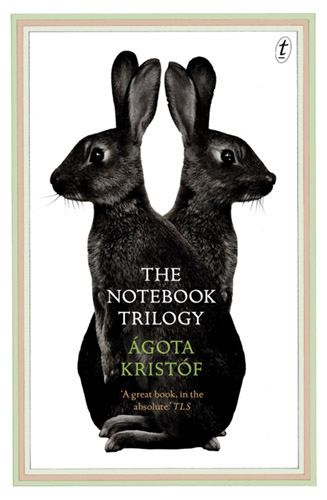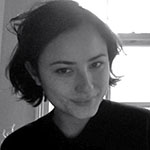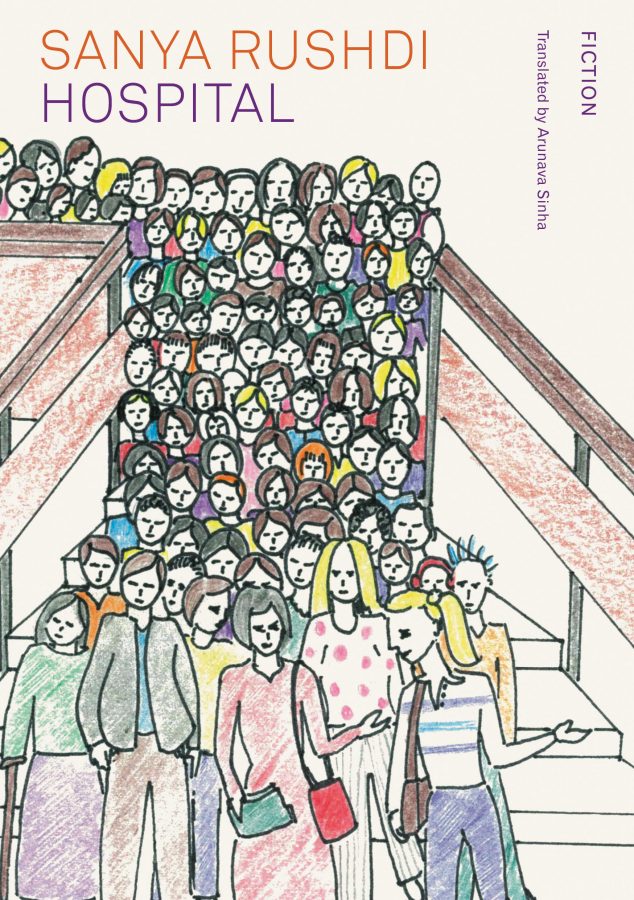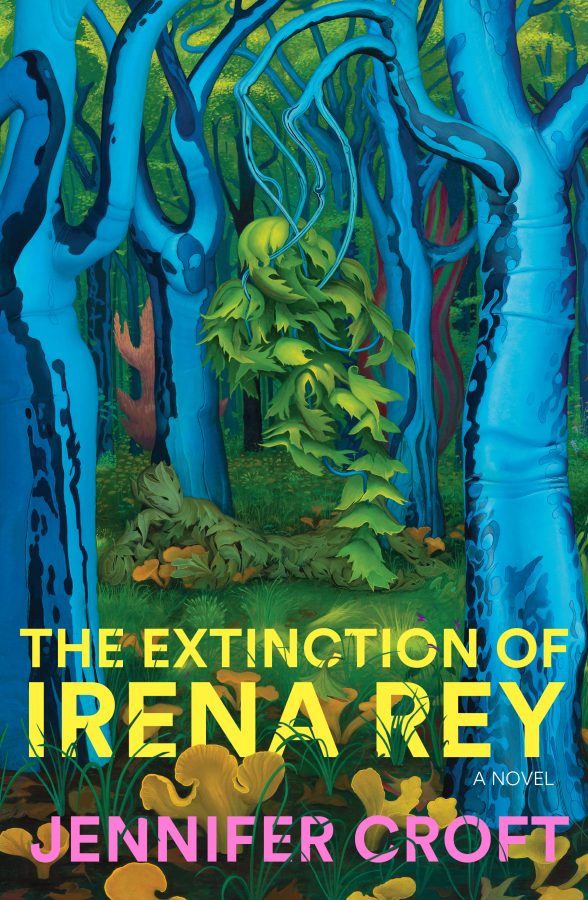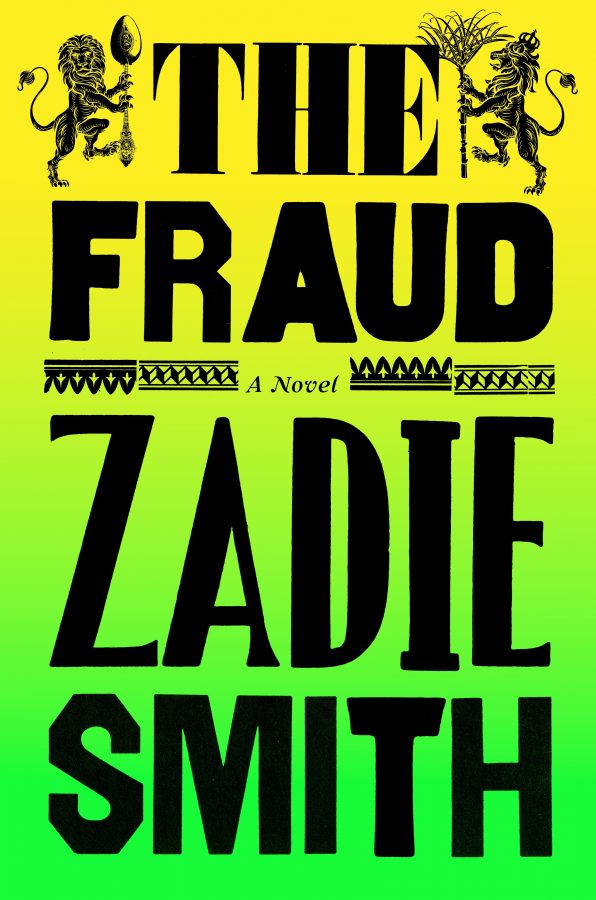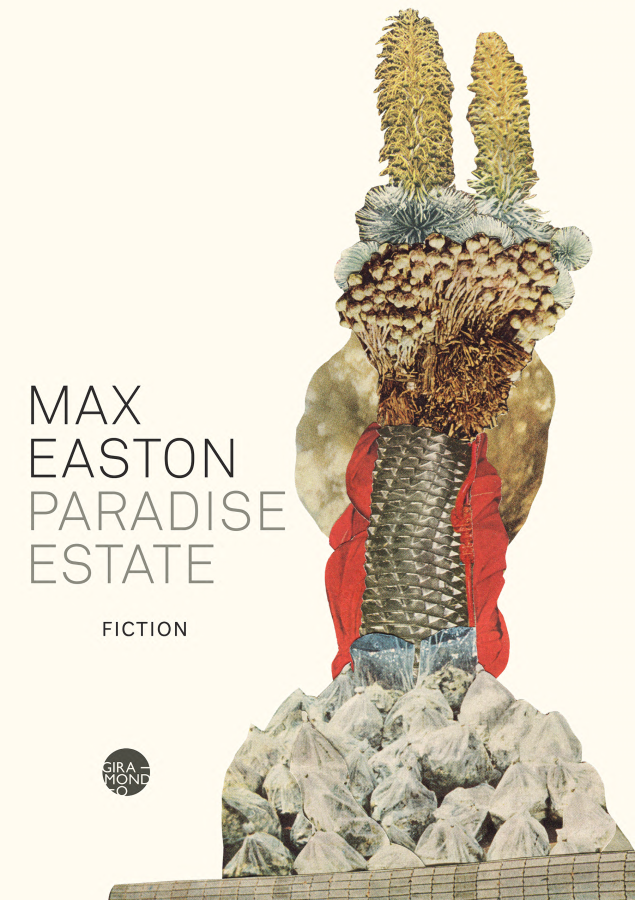You may not have heard of Ágota Kristóf (1935-2011), but, in Tokyo, her name has been screamed over pulsing dance music. According to The Japan Times, her post-war novel, The Notebook, which was published in Japan as ‘Akudou Nikki’ in 1991, was carried ‘like a talisman’ to Tokyo’s night clubs in the 1990s and praised by Manga stars and celebrities. The actor and video game designer, Shingesato Ito, claimed that The Notebook was the inspiration for his cult Gameboy game, Mother 3. I imagine the novel’s protagonists—twin boys who self-flagellate, starve themselves, and feigned both deafness and blindness in order to harden themselves against the Second World War—as disturbing avatars.
Kristóf’s novel has much in common with the fairy tales of the Brothers Grimm. The Notebook starts like Hansel & Gretel. Two brothers are abandoned by their mother because she can no longer feed them, and left to fend for themselves with their grandmother (the Witch) who lives in a squalid dwelling on the edge of nameless border town. They have no way home. From there, in unflinching, spare prose, the story describes a life of violence, poverty, and perversion, not suitable for children or, for that matter, the faint of heart.
Ágota Kristóf was born in Csikvánd, a Hungarian village, in 1935. On foot she fled her home country in 1956, during the Hungarian uprising, as part of a small group that included her husband and infant daughter. They walked for hours in darkness afraid they were going round and round in circles and would soon be arrested, still in Hungary. Having successfully crossed into Austria, she travelled, by bus and train, to Switzerland. She had two bags, one containing diapers, clothes, and things for her baby, the other dictionaries. Completely by chance, she arrived in a Francophone city, where, she writes, ‘I confront a language that is totally unknown to me.’
Kristóf’s estrangement from language gave her a special distance from the syntax of quotidian speech. Her prose is rigorously simple in its grammar. Not a single word is wasted. As she explains in her memoir, ‘I know I will never write French as native French writers do, but I will write it as I am able to, as best as I can.’ Kristóf’s arduous and determined path to literacy in her adopted language, in a country she did not choose, gave rise to a radical prose style. Kristóf’s expression has an air of purity; her rigor and labor working as a kind of distillation process. She did not think to write in Hungarian. French, she has said, ‘killed my mother tongue.’ She had no choice but to accept French. But, as one of her translators, Nina Bogin, writes, her background created a special kind of prose: ‘French written through the prism of Kristóf’s native language, Hungarian.’
After learning spoken and then written French, Kristóf began writing poems, then plays for the radio and theater, before arriving, at last, at the novel. Kristóf’s trilogy, The Notebook (1986), The Proof (1988), and The Third Lie (1991)—published this month for the first time in Australia and New Zealand by Text—is her masterpiece. The Notebook is written in the first person plural from the perspective of the twins: ‘We are doing our immobility exercise in the garden.’ Always ‘we’. The second book, The Proof, is narrated in third person, and follows one twin. And the third and final book introduces an unsettling new voice, completely singular: ‘I am alone in my cell.’ Why did Kristóf write each book differently? Perhaps because she could, her writings are exercises in fluency, grammar, conjugation. They could also be an exercise in separation. Like the twins’ exercises in cruelty in the first novel, perhaps Kristof seeks resilience in these works. She cruelly separates the twins. She changes their past so they walk alone. She makes them into ‘lies.’ Maybe this made it easier to be separated from her own family, from her brother whom she loved most.
Each sentence delivers a blow. The gruesome details of the war are witnessed and remembered by the twins in a manner that is child-like but utterly grammatical. The directness is unrelenting. The twins are there in each novel, sometimes separated, sometimes together, their story changing, echoing, and advancing like a recurring nightmare. Even the characters get frustrated. In The Proof, when one of the twins is proclaiming to be another, his friend screams, ‘Stop it … stop this play-acting! It’s pointless. Aren’t you ashamed to be doing this to me?’ But there is no shame, a jarring absence in a novel where almost every encounter is tainted either by sexual perversion, anti-Semitism, or State-approved violence. The constant retellings, the conflicting details, the confusion of characters returning and disappearing, leave you groping for something, anything, to hold onto. Kristóf’s only life raft is the simplicity of her prose: ‘The sky is overcast.’
Kristóf’s characters, not only the twins, but the bookseller, the librarian, the grandmother, the priest, and the barman, exist in multiple iterations. Nothing lines up, because it never did to start with; each book is a draft, another life lived. But if you stop trying to figure out what happened—as I did after years of rereadings—you enjoy the trilogy for what it is: an elegy to fiction.
The Notebook is written by twin brothers, it is a joint effort—they do everything together—to keep their minds sharp, and to record the days, months, years, they spend at Grandmother’s house. They write in prose like this: ‘The forest is very big, the stream is very small. To get to the forest, we have to cross the stream.’ Nothing is out of order here, in the description of forests and streams, but it is wartime, and when the twins—who are presumably around eleven years old—recount something more sinister, their voice has a creepy, sociopathic coldness. ‘Once, deep in the forest, beside a big hole made by a bomb, we find a dead soldier. He is still in one piece, only his eyes are missing because of the crows.’
The twins never say how they feel or discuss their emotions. That’s not the point. This isn’t a catharsis, a way to deal with the traumatic scenes they witness; writing is simply part of their studies. ‘We use the dictionary for spelling, to obtain explanations, but also to learn new words, synonyms, and antonyms.’ They only want to compose texts that are of a certain standard, and for the twins the measuring stick is truth. They outline their meticulous method:
We start writing. We have two hours to deal with the subject and two sheets of paper at our disposal.
At the end of two hours we exchange our sheets of paper. Each of us corrects the other’s spelling mistakes with the help of the dictionary and writes at the bottom of the page: ‘Good’ or ‘Not good.’ If it’s ‘Not good,’ we throw the composition in the fire and try to deal with the same subject in the next lesson. If it’s ‘Good,’ we can copy the composition into the notebook.
To decide whether it’s ‘Good’ or ‘Not good,’ we have a very simple rule: the composition must be true. We must describe what is, what we see, what we hear, what we do.
For example, it is forbidden to write, ‘Grandmother is like a witch’; but we are allowed to write, ‘People call Grandmother the Witch.’
It takes only a moment, harriedly flicking back through the book, to realize that each composition, always around two pages, is an early chapter of The Notebook. The compositions are written under bare titles, such as ‘Arrival at Grandmother’s’; ‘School’; ‘Chores.’ This becomes a fictional explanation for the text in hand. The twins are not merely telling the story, they are editing, revising, drafting, and ordering it. For them, the truth is contained in prose stripped of subjectivity, uncorrupted by feeling. But, while the prose may be uncorrupted, the design of the text, the effortless arc and ordering of events, is less innocent. It suggests a calculating literary mind more advanced than even the most precocious twins.
The twin’s method for understanding what is ‘good’ and ‘bad’ does not apply only to writing, but also to what they see: Grandmother hoarding money and jewels under her bed, an affair between a captain and a soldier, a young girl fornicating with a dog, the clumsy lovemaking of teenagers. Often these transgressions are witnessed through cracks or peepholes, or from behind trees and bushes in the forest. One day they follow their grandmother, ‘Hiding behind bushes and tombstones, we get closer and closer… We can observe her without her knowing.’ When the twins confront her about what she was up to, the Witch yells, ‘You’ve been spying on me, sons of a bitch, you’ve been spying on me again! May the devil take you!’
Mostly, the twins are detached, voyeurs looking down, collecting material for blackmail, but, when invited, they partake in the perversity. When the military captain who lives on Grandmother’s land invites the twins into this room, lies face down on his bed, and hands them each a belt, the twins write, ‘we know what to do.’ The twins consenting to whip a military captain for his sexual gratification, might seem ‘bad,’ but, by their logic, it does not fall into that category. If what they see or experience is ‘true,’ honest, as the captain’s perversion is, then, the offender is given a free pass. The twins do not punish the captain for his desires; in fact, they don’t even blink.
The young, fresh-faced housekeeper—who also sexually abuses the twins by ‘cleaning’ their bodies with her mouth—does not however, get a pass. The twins see her holding out a piece of bread to Jewish villagers, as they are deported to camps, but snatching it back, laughing. It is dishonest, cruel, an empty gesture. This is the kind of behavior the twins cannot tolerate. What do the twins do with bad compositions? They toss them into the fire. Ammunition somehow finds its way into the housekeeper’s fireplace, and her face is blown off.
The Proof is a different story. The twins, who are both inseparable and indistinguishable in The Notebook, are wrenched apart. The first line reads, ‘On his return to Grandmother’s house, Lucas lies down by the garden gate in the shade of the bushes.’ When we meet Lucas he is living alone in his own filth. He has not tended to his plants or animals in weeks. He vomits in the garden. He sits on the bench outside of Grandmother’s house. When he opens his eyes, a little girl appears swinging on the branch of the cherry tree in his garden. She relays a message from her mother: Lucas needs to visit the priest, who is having trouble caring himself. Lucas asks the girl, whose name is Agnes, if she is ever sad. ‘No,’ she says, ‘because one thing always makes up for another.’ Lucas takes the little girl in his arms and inside, they listen to music, and he squeezes her little leg, until she cries and runs off.
Lucas, at last, has a name. Kristóf likes to play with names. Lucas’s twin, we later discover, is named Claus. Their names are an anagram. Lucas has a second name, as well, in the village he is known as ‘the Idiot,’ a persona he embodies to the extent that he lists idiot as his profession on his state identity card. But where is Claus, where is the other twin?
One thing always makes up for another, and early in The Proof, Lucas acquires a little family. He sees a young woman crying on the bridge—the bridge the twins built in The Notebook—by the icy river. She cannot bring herself to drown her child. Lucas offers to drown the baby, reassuring the woman by saying ‘I’ve drowned mice, cats, puppies.’ She declines and he takes them both in. There are three people at Grandmother’s once more. Lucas, Yasmin, and Matthias, a crippled child born out of a love affair between Yasmin and her father. When Matthias is older, Lucas tells him,
‘I see my brother everywhere. In my room, in the garden, walking beside me in the street. He speaks to me.’
‘What does he say?’
‘He says he is living in mortal solitude.’
Solitude returns throughout the book. One twin is always looking for the other, feeling for him like a phantom limb. Before Yasmin and Matthias arrived, the priest had diagnosed Lucas with ‘an illness of the soul…due to your tender age, and perhaps, your excessive solitude.’ It is unclear if Lucas feels his solitude so acutely because he knows what it is like to be one with another person, if that separation was for him like losing his reflection, or, if he has always been alone. Like the twins of The Notebook, Lucas keeps the polished skeletons of his mother and half-sister, who were killed by a stray bomb, in the attic (Kristóf does not shy from heavy-handed metaphor). The tricky part is keeping skeletons—the dead, the vanished—and the imagined straight.
It becomes a question of existing. When so many of the villagers are widows, widowers, orphans, can a dead person be more real than the living? Victor the bookseller says to Lucas,
‘I am convinced, Lucas, that every human being is born to write a book, and for no other reason. A work of genius or mediocrity, it doesn’t matter, but he who writes nothing is lost, he has merely passed through life without leaving a trace … You yourself, Lucas, are writing a book. About whom, about what, I don’t know. But you write. Since you were a child you have never stopped buying sheets of paper, pencils, notebooks.’
Kristóf writes about paper as if it were bread. In each of her books, a character talks about paper in terms of needing and consuming it. The village bookshop is at the center of every novel in the trilogy. It is rather impoverished; literature was either censored or scarce. Instead, it functions as a stationary store. After Kristóf’s father was imprisoned by the state, she was separated from her family and sent to a boarding school where there was little to read. There, she writes, ‘to bear the pain of separation, only one solution will remain: to write.’
There is a public library in the town where Lucas lives. It is not mentioned in The Notebook, but Lucas finds it, even though the names of the streets are constantly being changed by the regime. There he meets the widower, Clara, whose hair turned gray from shock when her husband was executed by the state. She is the librarian tasked to ‘put this place in order.’ She has the sad duty of destroying all the books on an index provided by the state. Which is almost every book. When she finds a book she cannot bear to destroy, she smuggles it home with her and hides it in a sack of coal in her basement. Eventually, she has a lot of coal.
In the Third Lie, we meet an new person, who, after stricken Lucas, seems impossibly cruel. He offers no comfort after the knocks of the first two novels. ‘All this is a lie…. I know very well that I was already alone in this town, with Grandmother, that even then I only fantasized that there were two of us, me and my brother, in order to endure the unbearable solitude.’ A man named Klaus writes this from prison.
Kristóf presents us with a series of eclipses: solitary Lucas eclipses the twins; Klaus comes along to eclipse Lucas, to reduce the twins to a lie. The trilogy thrills, but the suspense is incidental. Kristóf kept returning to twins because they stayed with her. They wouldn’t leave her alone, so she kept writing them over again. Fretting over the twins’ fate would be like creating a blueprint for a ruin. When she was a child, she tells, ‘I like to tell stories. Stories I invented myself.’ Sitting on her Grandmother’s lap, Kristóf says, ‘I begin with a sentence, any sentence, and the rest follows. Characters appear, die, or disappear… There is no end to the story I stammer on Grandmother’s knees.’
One of Kristof’s most beautiful characters is an insomniac who stays by his window all night asking everyone who passes for the time. He is a man who only has time, waking hours, loneliness; a widower whose wife was murdered by the regime. One night he says to Lucas, ‘Life is like that. Everything goes in time.’ In an interview conducted in 1999, Kristof was asked about the insomniac. But he was not strictly an invention, she knew a woman like that, who couldn’t sleep and would sit on her balcony and ask ‘What time is it? What time is it?’ Sometimes the truth is fiction. But, as Lucas tells in The Proof, ‘No book, no matter how sad, can be as sad as life.’
To believe that the trilogy holds the answers, or that the end of any of the novels is definitive, is to miss the point, and the pleasure of Kristóf’s fictions. She only wrote to amuse herself a little.
In Switzerland, in her later years, Kristóf was a published author who had been awarded prizes. One day, a friend wants to tell Kristóf about a fascinating television program she has seen about women workers, who work all day in a factory, and care for their children in the evening. The friend goes on, ‘And they don’t even know French.’ Kristóf tells her that’s what she used to do, that was her life. She writes,
My friend is upset. She can’t tell me the amazing story about the foreign women that she saw on television. She has forgotten my past so well that she can’t imagine that I once belonged to this race of women who don’t know the language of the country, who work in factories and take care of their families of the evening.
Ágota Kristóf never found her way home after leaving Hungary. Her children were Swiss, her brothers Hungarian, but she could never sit still in either identity. After writing her fourth novel, Yesterday (1995), a loosely autobiographical book that is now out of print in English, and her slim memoir, The Illiterate (2004), she wrote little more, just some shorter texts that have not been translated into English, and in the years before she died she lost the urge to write. She couldn’t get down to it. She remained always alone, an illiterate, and an exile. On her shelves in Switzerland she proudly displayed copies of her own novels in foreign editions. Proof that her writing was intelligible in other countries, in other tongues. ‘What would my life have been like if I hadn’t left my country? More difficult, poorer, I think, but also less solitary, less torn. Happy, maybe.’
